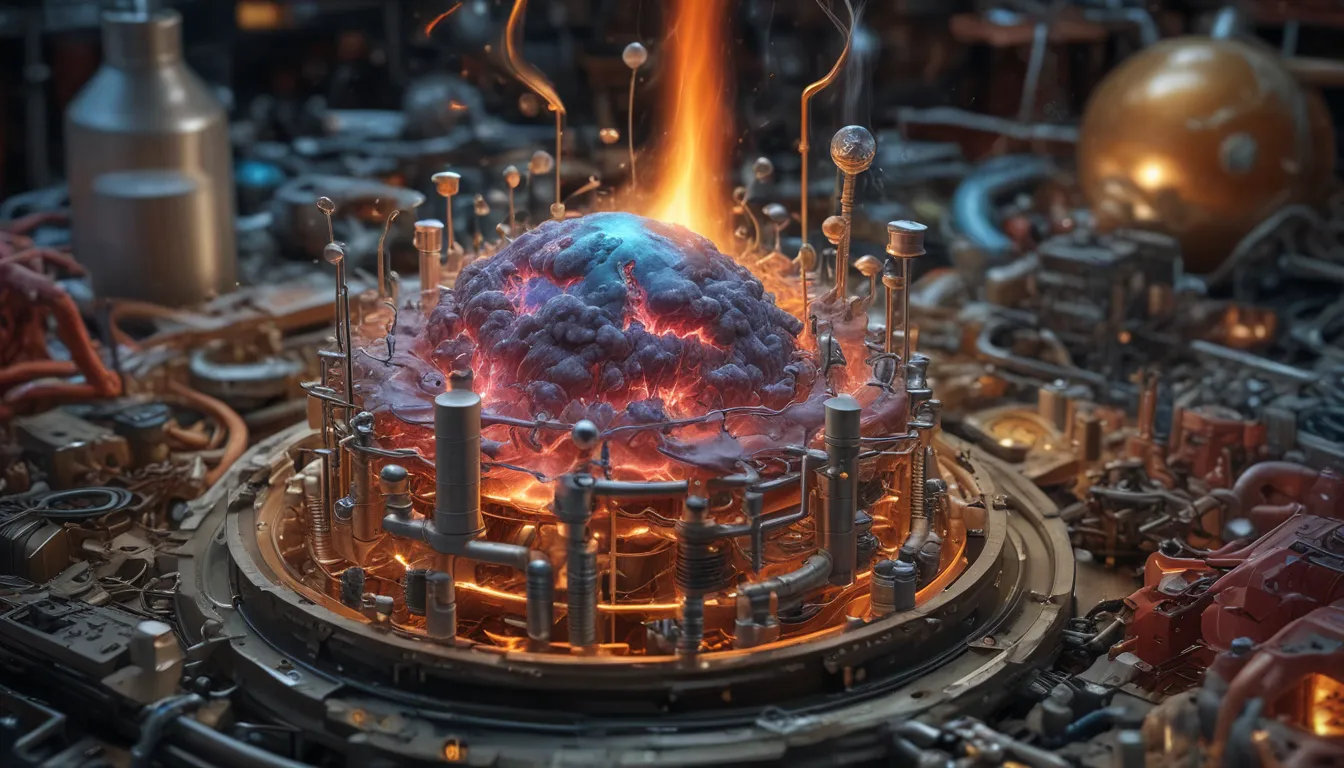A Note About Images: The images used in our articles are for illustration purposes only and may not exactly match the content. They are meant to engage readers, but the text should be relied upon for accurate information.
The second law of thermodynamics is a foundational concept in physics that governs the behavior of energy in various systems. It helps us understand why certain processes occur in one direction and not in the reverse direction. This law is crucial in fields such as thermodynamics, engineering, and biology, as it influences the behavior and efficiency of diverse systems.
Understanding the Second Law
The Second Law of Thermodynamics tells us that energy always spreads out and becomes less useful over time. This means things tend to get more disorderly and disorganized as time progresses. The law also explains why engines, chemical reactions, and other processes work the way they do, offering us valuable insights into the future of the universe.
Energy Degradation
According to the Second Law of Thermodynamics, energy spontaneously tends to disperse or degrade over time. This results in energy flowing from areas of higher concentration to lower concentration, leading to a loss of usable energy within a system.
Entropy Increase
Entropy, a measure of randomness or disorder in a system, will always increase over time in an isolated system as predicted by the Second Law. The universe naturally moves towards a state of greater disorder, showcasing the tendency of systems to become more chaotic.
Conservation of Energy
Although energy constantly transforms and dissipates, the total energy in a closed system remains constant. This principle, known as the conservation of energy, is a fundamental aspect of the Second Law of Thermodynamics.
Heat Transfer
The Second Law establishes that heat flows naturally from a hot object to a colder one. This process, known as heat transfer, is driven by the increasing entropy of the system.
Carnot Efficiency
The Carnot efficiency represents the maximum efficiency any heat engine can achieve when operating between two temperature extremes. It is solely determined by the temperatures of the hot and cold reservoirs and is a consequence of the Second Law.
Irreversible Processes
The Second Law implies that most processes in the real world are irreversible, meaning once energy is converted into an unusable form like heat, it cannot be fully restored to its original state.
Statistical Behavior
At the microscopic level, the Second Law of Thermodynamics is rooted in the statistical behavior of atoms and molecules. While individual particles may exhibit random behavior, the overall trend towards disorder remains consistent.
Decrease in Chemical Reactions
In any chemical reaction, the total entropy of the system and its surroundings will always increase or at best remain the same, as dictated by the Second Law. This principle helps explain why certain reactions are favored over others.
Time’s Arrow
The Second Law provides a fundamental arrow of time in physics, stating that natural processes occur in the direction of increasing entropy. This helps us distinguish between the past and the future based on the direction of increasing disorder.
The Heat Death of the Universe
One of the most significant implications of the Second Law is the concept of the eventual heat death of the universe. As energy dissipates and becomes less concentrated, thermal equilibrium will be reached, leading to a state of maximum entropy and the cessation of all processes.
Order from Disorder
While the Second Law suggests an overall increase in entropy, localized decreases in entropy are still possible. Life, for instance, maintains order and complexity by expending energy and increasing entropy elsewhere in the system.
Reversible Processes
Although most processes in the real world are irreversible, the Second Law does allow for reversible processes under certain conditions with no net increase in entropy.
Thermodynamic Equilibrium
At thermodynamic equilibrium, a system no longer has the potential for energy transfer or change, characterized by uniform temperature and pressure, representing a maximum entropy condition.
Maxwell’s Demon
Maxwell’s Demon challenges the Second Law by proposing a microscopic entity capable of selectively allowing particles to pass through a barrier, reducing entropy. However, this scenario contradicts the statistical nature of entropy and remains theoretical.
Practical Applications
The Second Law of Thermodynamics has diverse applications in multiple fields, explaining engine efficiency, chemical reaction behavior, radioactive decay, and biological system dynamics.
Conclusion
In conclusion, the second law of thermodynamics is a fundamental principle in physics that guides the behavior of energy and its natural flow. It offers insights into the irreversible nature of physical processes and the tendency towards increasing disorder in isolated systems, impacting various fields like engineering, chemistry, and environmental science.
Studying the second law enables scientists and engineers to design efficient engines, develop sustainable energy sources, and make predictions about complex systems’ behavior. From entropy as a measure of disorder to the concept of heat engines, the law has revolutionized our understanding of energy transformation and opened new avenues of inquiry.
FAQs
-
What is the second law of thermodynamics?
The second law states that the total entropy of a closed system will always increase over time. -
What is entropy?
Entropy measures the disorder or randomness in a system, tending to increase in isolated systems per the second law. -
How does the second law relate to energy?
The law implies energy disperses and becomes less available for work, explaining the inefficiency of energy transformations. -
Does the second law contradict the first law of thermodynamics?
No, the second law complements the first law, which conserves energy while explaining the direction of energy transfer and process irreversibility. -
Can we defy the second law of thermodynamics?
No, the second law is a fundamental nature principle validated by experiments, showcasing the overall increase in entropy in closed systems.
Understanding the Second Law of Thermodynamics is pivotal to comprehending energy behavior and transformations in our universe. Exploring its principles sheds light on entropy, heat transfer, and irreversible processes shaping our world. From disorder’s inevitable rise to efficiency limits, thermodynamics offers captivating insights into nature’s inner workings, inviting us to delve deeper into this scientific pillar.






